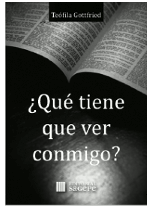Truth really can be stranger than fiction.
First Page - Now launched! All the stories are true, or based on real events. Unlimited reading for $4.99 / month. No downloads. Read on your phone, tablet or computer.
La verdad puede ser más extraña que la ficción.
First Page - ¡Ya está en marcha! Todas las historias son verídicas, o están basadas en hechos reales. Lectura ilimitada por $4.99 / mes. No hay que descargar nada. Lea en su teléfono, tableta u ordenador.
Manna Minutes Podcast: Eye-opening Bible study in less than five minutes! Access all episodes here.
Manna Minutes en español:
Estudio bíblico que nos hace abrir los ojos en menos de cinco minutos! Acceda a todos los episodios aquí.
Manna Minutes Podcast auf Deutsch:
Augenöffnendes Bibelstudium in weniger als fünf Minuten! Alle Episoden finden Sie hier.
Was There A Curse On Helen's Romantic Life?
The Third Man by Angela Sheffield is based on a true story. Read chapter one now!
View Content By Specific Category
¿Qué tiene que ver conmigo? por Teófila Gottfried
Lo que leemos en la Biblia tiene que ver con todos los seres humanos, sean cristianos o judíos, ateos o agnósticos, budistas, musulmanes o adherentes a alguna de las filosofías o nuevas religiones que surgen en el mundo. ¿Por qué? Ver mayor información sobre este interesante libro.
Scripture of The Day - St. John 14:6
Jesus saith unto him, I am the way, the truth, and the life: no man cometh unto the Father, but by me.
Escritura del día - San Juan 14,6
Jesús le dijo: Yo soy el camino, y la verdad, y la vida; nadie viene al Padre, sino por mí.
Bibelstelle des Tages - Johannes 14,6
Jesus spricht zu ihm: Ich bin der Weg und die Wahrheit und das Leben; niemand kommt zum Vater, denn durch mich!
Love One Another: A Commandment to the Body of Christ

Beloved Let Us Love One Another
The scripture of 1 John 4:7 which says, "Beloved, let us love one another...," is just one of many in the Christian Bible that speak of the need of the body of Christ to love one another. Believers can be certain that this need is not a suggestion; it is a literal commandment. Jesus said, "A new commandment I give unto you, that ye love one another as I have loved you, that ye also love one another. By this shall all men know that ye are my disciples, if ye have love one to another" (KJV, St. John 13:34-35). The Savior used the word "commandment."
True Membership in the Body of Christ
Not only does God's word emphasize the Lord's commandment to the body of Christ to love one another, it also issues a solemn warning to all "believers" who do not abide by it. Although there are several scriptures that teach this truth, there are two passages that drive home the seriousness with which it should be received. 1 John 3:10-14 reads, "In this the children of God are manifest, and the children of the devil. Whosoever doth not righteousness is not of God, neither he that loveth not his brother. For this is the message that ye heard from the beginning, that we should love one another. Not as Cain, who was of that wicked one, and slew his brother. And wherefore (why) slew he him? Because his own works were evil, and his brother's righteous. Marvel not, my brethren, if the world hate you. We know we have passed from death unto life because we love the brethren. He that loveth not his brother abideth in death."
True members of the body of Christ do not abide in death because they abide in Christ who is life (St. John 14:6, 15:10). The author of the passage in 1 John is not "beating around the bush" when he teaches that the "Christian" who does not love the body of Christ is not a true servant of God at all as no true servant of the Lord abides in death. A legitimate question that students of the Bible might ask when studying the subject of the need for the body of Christ to love the brethren in Christ is, "Why does God place such emphasis on love within the brethren in Christ?"
To Love the Brethren in Christ Is to Love God
When someone has received Christ as Lord and Savior, and serves him in obedience and love, Christ takes up residence in him or her. Jesus taught, "...If a man love me, he will keep my words and my Father will love him and we will come unto him and make our abode (residence) with him" (St. John 14:23). This means that God lives in his people. Now, what is the first and greatest commandment? Jesus taught in St. Mark 12:29-30 that, "...The first of all the commandments is, Hear, O Israel; The Lord our God is one Lord. And thou shalt love the Lord thy God with all thy heart, and with all thy soul, and with all they mind, and with all thy strength. This is the first commandment."
If a believer truly loves God, he or she loves him whenever, however, and in whomever he shows up. God cannot be split up into parts, meaning that the Christian doesn't love the God that lives in him or her while rejecting the same God who lives in a brother or sister. Christ is Christ wherever he lives. The God who lives in the body of Christ who is in China is the same God who lives in the body of Christ in France, in Mexico, in the United States, and every and anywhere else. The God who lives in the body of Christ composed of members who have been saved from despicable lifestyles is the same God who lives in the brethren in Christ who've led "good" lives according to man's standards. It is in this truth that the emphasis of the message is found--those who do not love God wherever and in whomever he abides, do not love him period. Those who do love God, love him wherever and in whomever he lives.
This is why we read, "Than shall the King (Jesus) say unto them on his right hand, Come, ye blessed of my Father, inherit the kingdom prepared for you from the foundation of the world: For I was an hungred and ye gave me meat. I was thirsty and ye gave me drink. I was a stranger and ye took me in, naked, and ye clothed me. I was sick and ye visited me. I was in prison and ye came unto me. Then shall the righteous answer him, saying, Lord, when saw we thee an hungred and fed thee? or thirsty and gave thee drink? When saw we thee a stranger and took thee in? or naked and clothed thee? Or when saw we thee sick, or in prison, and came unto thee? And the King shall answer and say unto them, Verily I say unto you, Inasmuch as ye have done it unto one of the least of these my brethren, ye have done it unto me. Then shall he say also unto them on the left hand, Depart from me, ye cursed, into everlasting fire, prepared for the devil and his angels. For I was an hungred, and ye gave me no meat. I was thirsty and ye gave me no drink. I was a stranger, and ye took me not in, naked, and ye clothed me not, sick, and in prison, and ye visited me not. Then shall they also answer him, saying, Lord, when saw we thee an hungred, or athirst, or a stranger, or naked, or sick, or in prison, and did not minister unto thee? Then shall he answer them, saying, Verily I say unto you, Inasmuch as ye did it not to one of the least of these, ye did it not to me (Matthew 25:34-45).
Many have misinterpreted the passage of Matthew to mean that good works can replace salvation. Not only is the anti-biblical doctrine of "salvation by works" revealed in scripture. Jesus, in the passage of Matthew, emphasizes that the people who were fed, clothed, visited, etc., were people in whom he abided because he called them brethren and he equated himself with living in them when he said that such things were done unto him or not done unto him. While it is a good thing to feed the hungry, clothe the naked, and visit the sick in general, it is not the same thing for the body of Christ to do these things among themselves as they love one another.
"If a brother or sister be naked and destitute of daily food, and one of you say unto them, Depart in peace, be ye warmed and filled; notwithstanding ye give them not the things which are needful to the body, what doth it profit" (James 2:15-16).
"As we have therefore opportunity, let us do good unto all men, especially the household of faith" (Galatians 6:10).
 Based on true events, The Third Man by Angela Sheffield, brings the Bible up close and personal as the characters face real issues of life: Betrayal, deceit, romance, bitterness, anger against God, hopelessness, will power, perplexity, triumph, unforgiveness, mental illness, and the "Alcohol made me do it" excuse. Read chapter one FREE now.
Based on true events, The Third Man by Angela Sheffield, brings the Bible up close and personal as the characters face real issues of life: Betrayal, deceit, romance, bitterness, anger against God, hopelessness, will power, perplexity, triumph, unforgiveness, mental illness, and the "Alcohol made me do it" excuse. Read chapter one FREE now.
Copyright notice: This website and its content is copyright of © Heavenly Manna (HeavenlyManna.net) 2002-2025.
Comments/Comentarios:
Send Comments or a Private Message about One of Our Services / Envíe Comentarios o un Mensaje Privado acerca de nuestros servicios
Once comments reach 10, they close. IF YOU USE PROFANITY, WE WILL REJECT YOUR COMMENT AUTOMATICALLY.
We're a small team, please be patient as we review comments.
©2003 - 2013 Heavenly Manna Ministries
Images: courtesy of Free Digital Photos, openstockphotography.org, FreeFoto.com, Wikimedia Commons. Multiple crosses image - Wikimedia Commons - C.G.P Grey - Animation by Heavenly Manna










